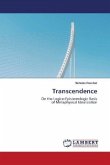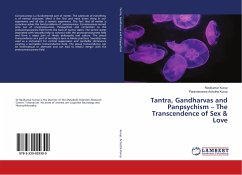High Quality Content by WIKIPEDIA articles! In philosophy, the adjective transcendental and the noun transcendence convey three different but somehow related primary meanings, all of them derived from the word's literal meaning (from Latin), of climbing or going beyond: one sense that originated in Ancient philosophy, one in Medieval philosophy, and one in modern philosophy. The first meaning, as part of the concept pair transcendence/immanence, is used primarily with reference to God's relation to the world and is particularly important in theology. Here transcendent means that God is completely outside of and beyond the world, as contrasted with the notion that God is manifested in the world. This meaning originates both in the Aristotelian view of God as the prime mover, a non-material self-consciousness that is outside of the world. Philosophies of immanence such as stoicism, Spinoza, Deleuze or pantheism maintain that God is manifested in and fully present in the world and the things in the world.
Bitte wählen Sie Ihr Anliegen aus.
Rechnungen
Retourenschein anfordern
Bestellstatus
Storno








